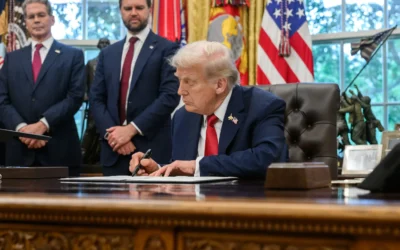First came the native trails and traces. Fair and free they were, unless you were on the wrong one at the wrong time, or wanted to haul more than a dog team or horse could carry.
Then came the local government roads. Suck they did, your wagon wheels into the muck.
Corporate roads were next. Turnpikes the people called them. Imperfect they were but far superior to what came before. Annual toll passes made paying for passage convenient, but alas only locally.
Then came the horseless carriages and the wanderlust. Inconvenient, it was, to pay tolls frequently in cash when cruising far from home, which became commonplace.
Leviathan then said unto the people, your ways shall once again be “free.” New roads it built, and the old corporate ones over it took.
But some of the people did not want roads, or rather the ever higher taxes needed to build and repair them. They were ignored until a great depression overtook the land, when it was decreed that a tax on fuel would fuel construction of the freeways.
What the people saw was good because the users of the roads were again those paying for the roads, as in the days of the turnpikes, at least more or less.
But what the people didn’t see was that many a dollar was wasted on cheap construction methods that led to needless potholes, endless construction delays, and yet-higher fuel taxes.
Then came new horseless carriages that needed little or no taxed fuel. Its coffers drained by those highway robbers, Leviathan said let us now tax vehicles based on the number of miles they travel on our “free” roads.
The people did not rejoice, but instead finally began to study history, where they found old stories about the ways of the ancient turnpikes. And it dawned on a few of the people that if they were going to have to pay per mile traveled anyway, they should return the roads to private hands and pay tolls via electronic transponder, the modern way to achieve the convenience of the old turnpike pass system.
The owners of private roads, those few in the know knew, would provide better roads at lower cost than Leviathan ever could. Different incentives private owners have, to make roads that do not suck … tires into potholes, or turn minutes into hours while overpaid contractors on their laurels do rest.
Scream the few in the know did, but the rest of people did not listen, or perhaps could not hear, due to the din of Leviathan and its many media minions.
But maybe, just maybe, others one day will join the call once they hear how much cash could be recouped, and costs and delays avoided, by returning to the path once heavily traveled, the one where travelers, not Leviathan, decide how best to travel hither and thither.
Made available by the American Institute for Economic Research.




